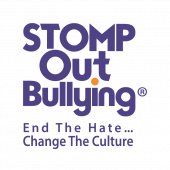
You’d think that the use of a personal device, such as a cell phone or tablet, would mean that you’re in a safe space. No one is physically around to hurt you or make you feel scared, right?
Unfortunately, this way of thinking couldn’t be more wrong.
Cyberbullying doesn’t just apply to one or two teens - it can happen to any of them. And, in fact, it does. According to a study of students aged 11 to 15 years old by the Cyberbullying Research Center, 34% reported that they had experienced cyberbullying in their lifetimes.
As this study was completed in 2015, we can theorize that 3 years later those numbers have grown.
So, is cyberbullying the same as bullying? How can we help our teens know what to do when faced with a cyberbullying attack? Here’s what you need to know.
What is Cyberbullying?
Cyberbullying is when someone repeatedly harasses, mistreats, or makes fun of another person online or while using cell phones or other digital devices.
Some examples of this type of harassment includes:
- Hurtful words posted about another teen
- An embarrassing photo or video posted with the intention of humiliating the teen
- Hurtful texts or instant messages sent to the teen
- Spreading nasty rumors online or via mobile device about the teen
The biggest issue with cyberbullying, compared to other types of bullying, is that it can occur 24/7 and anonymously while hiding behind a screen. No matter where your teen might be, if they are using their mobile device, they could experience cyberbullying.
Another issue with cyberbullying is its permanence.
Any humiliating post, picture, or hateful words that are posted about your teen will be there forever. What goes online stays online. This can continue the trauma long after the initial post or reaction.
Because of its persistence and its permanence, cyberbullying can be extremely hurtful and dangerous for anyone who experiences it. Cyberbullying may lead to depression, emotional distress, school avoidance, and much more.
What are the warning signs to look for?
If you think your teen might be being cyberbullied, here are the signs you should watch for:
- They abruptly stops using their device
- Your teen appears to be uneasy about going to school or leaving the house
- They appear jumpy or nervous when using their device
- Loses interest in activities they normally loved
- They become very withdrawn from family or friends
- Seems regularly depressed
- Doesn’t want to talk about what’s happening online
- Appears angry, depressed, or frustrated after going online
- Makes passing statements about suicide or not wanting to live anymore
- Shows drastic changes in their eating or sleeping patterns
- Wants to spend more time with parents than with their peers
How can we help put a stop to it?
As parents, teachers, and guardians, we can help our teens handle cyberbullying by encouraging them to block their bullies from their mobile devices, social media, and more.
Unfortunately, confronting or asking the bullies online to stop won’t do a lot to help the situation. It might even fuel more hateful words and actions towards your teen. Teens should never respond to cyberbullying.
Your teens have the power over their online activities and presence. They can choose to take the power back from their bullies by choosing to block and delete their oppressors from their online lives.
Your teen might be nervous about doing this, but it’s important for them to realize that they can make their own environment and take their control back. Plus, “out of sight, out of mind” is a very effective strategy when it comes to dealing with cyberbullies.
It’s such an effective strategy that we started our very own #BlockItOutDay.
Your teen doesn’t have to live in a digital world where hate wins. Block It Out Day is not about getting likes vs. dislikes. It’s a day about spreading positivity and making social media a safe place for everyone to be.
If you or your teen aren’t sure about how to block someone on social media (Facebook, Twitter, Instagram, SnapChat) click to view our guide on how to do so. We created this resource to help everyone who wants to participate in Block It Out Day and create a more loving, positive cyber-environment.
Are you ready to say goodbye to cyberbullying on social media once and for all? Mark your calendars for next year’s Block It Out Day on November 14, 2019! Together, we can end the hate and make social media a safer place to be!
Resources:
https://cyberbullying.org/2015-data/
share:


Follow STOMP Out Bullying